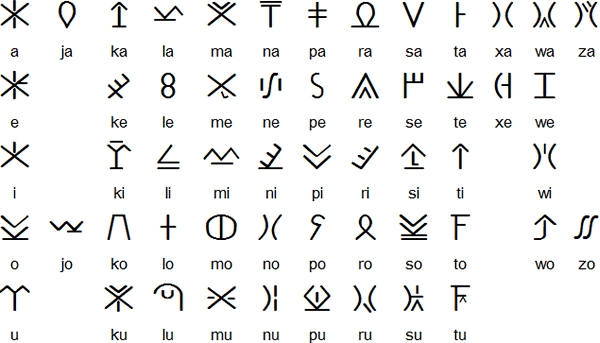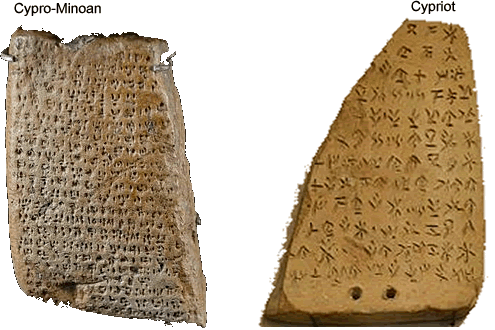From around 1200 BC Cyprus began to be colonised by Mycenaean, Minoan and possibly Cretan Greek settlers, and they probably adapted the existing script to write their own language - the oldest known inscription in Greek dates from the 11th century BC. Cypriot Greek had much in common with Greek dialects of Arcadia and Pamphylia, which corresponds to the province of Antalya in Turkey.
Most early inscriptions were short texts and dedications on funerary objects, though some longer texts appeared during the 5th century BC. Some later inscriptions, particulary those from Paphus and Soli, are in the Cypriot script and in the Greek alphabet which helped with their decipherment. As a result of Alexander the Great's programme of Hellinization the Cypriot script was eventually replaced by the Greek alphabet during the 4th century BC.
The decipherment was started in 1871 by George Smith, who was later assisted by S. Birth, and was initially based on a bilingual Phoenician-Cypriot text on a bronze tablet from Idalium and dating from 480-470 BC. Other scholars, including Brandis, M. Schmidt, Deecke and Siegismund also worked on the decipherment, which was complete by 1876.
Notable features
- Type of writing system: syllabary
- Direction of writing: normally written from right to left in horizontal lines.
- Used to write: Cypriot dialect of Greek and other undeciphered languages
- Word breaks were not indicated.
Cypriot syllabary

Sample inscriptions

Links
Information about the Cypriot syllabaryhttp://en.wikipedia.org/wiki/Cypriot_syllabary
http://www.ancientscripts.com/cypriot.html
http://histories.cambridge.org/extract?id=chol9780521234474_CHOL9780521234474A005
http://www.palaeolexicon.com/default.aspx?static=14&Language_ID=31
Palaeolexicon - a word study tool for ancient languages, including Cypriot
http://www.palaeolexicon.com









.jpg)
.jpg)

.jpg)





0 comments:
Post a Comment
Note: Only a member of this blog may post a comment.